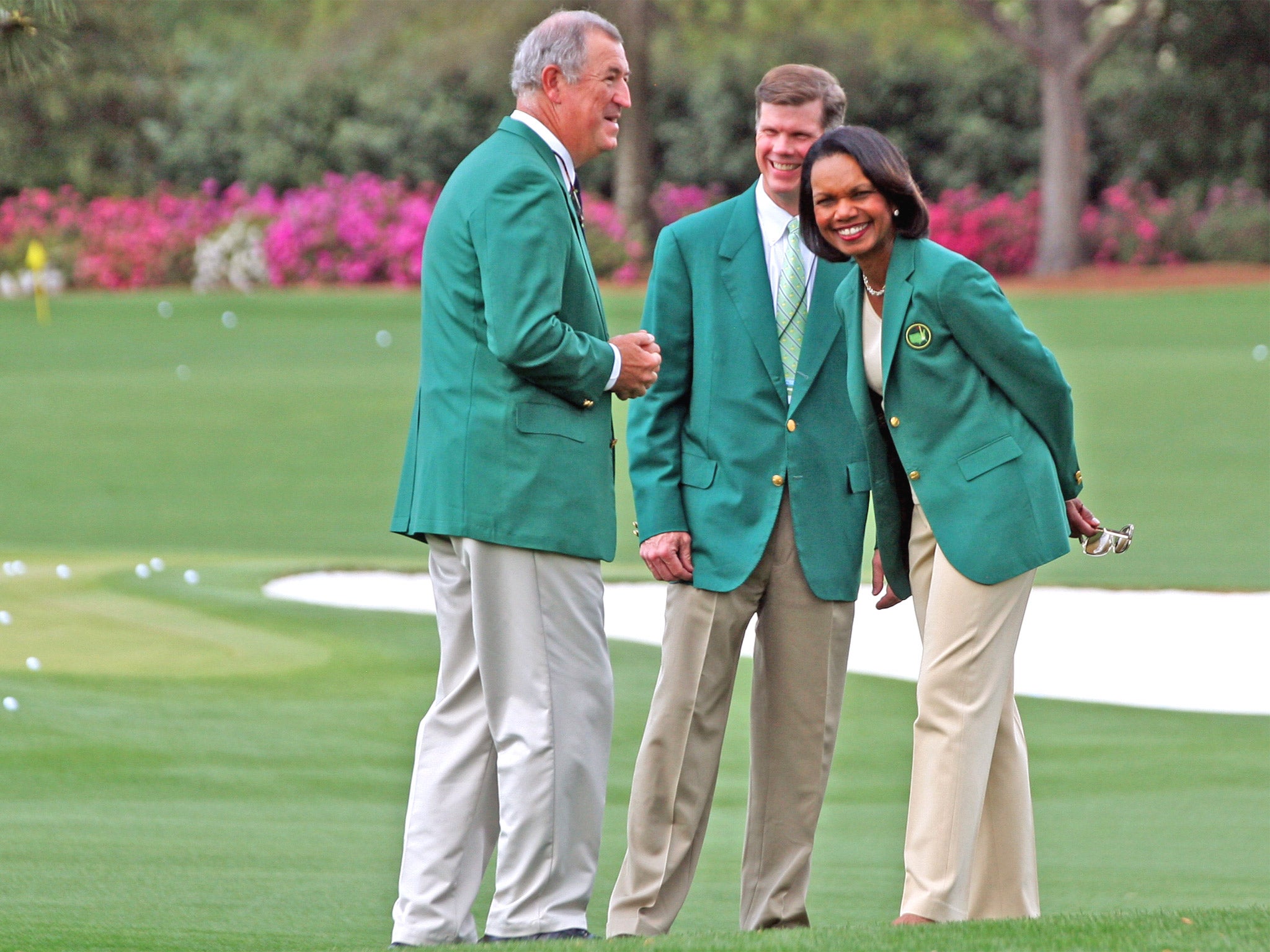The Masters 2013: Augusta's world still far removed from reality
Very little about the workings of this remarkable institution is known

Your support helps us to tell the story
From reproductive rights to climate change to Big Tech, The Independent is on the ground when the story is developing. Whether it's investigating the financials of Elon Musk's pro-Trump PAC or producing our latest documentary, 'The A Word', which shines a light on the American women fighting for reproductive rights, we know how important it is to parse out the facts from the messaging.
At such a critical moment in US history, we need reporters on the ground. Your donation allows us to keep sending journalists to speak to both sides of the story.
The Independent is trusted by Americans across the entire political spectrum. And unlike many other quality news outlets, we choose not to lock Americans out of our reporting and analysis with paywalls. We believe quality journalism should be available to everyone, paid for by those who can afford it.
Your support makes all the difference.In a summer when the Open Championship is hosted by a golf club, Muirfield, that does not permit women members the Masters Tournament is cast as a progressive force. Augusta National notionally shed its conservative cloak with the enrolment last year of its first female golfers, former United States Secretary of State, Condoleezza Rice, and South Carolina business leader Darla Moore.
Condoleezza's breezy round with crowd favourite Phil Mickelson on Sunday fired the Augusta message out there just as the world's media were descending on this polished enclave in the heart of America's south. Coincidence? Unlikely. Nothing happens by chance in this neighbourhood.
Very little about the workings of this remarkable institution is known. And questions are not invited. My inquiry about the annual fertilizer bill was met with a polite rebuff. It is hard to imagine a more beautiful setting, where the grass could not be greener were paint applied, where attention to detail is absolute and every care taken to ensure the patron experience is the best it can be.
But the nature of that happy experience is very much decided by Augusta, contributing to an overwhelming sense that the club and its 300 members exist in a constructed reality far removed and protected from the fundamentals shaping life outside the 365-acre site. The club's admission of women, Jack Nicklaus reflected, acknowledged that conventions had changed and – as with the breaking of the race bar in 1990 when the first Afro-American member was admitted – it was no longer possible to maintain old traditions. "It was time," Nicklaus said.
Given the membership fees, said to be between $10,000 and $30,000 a pop, are prohibitive, it is a moot point how far the interests of women and ethnic Americans are served by the relaxing of admission codes. This is an enclave of immense privilege, entry to which is not determined by gender or race but the oldest calling card of all, wealth. Before modernity impinged, Darla inquired of former Augusta National chairman Hootie Johnson, how to become a member. He replied: "You don't ask."
The symbolic value of women and black members is perhaps sufficient in this environment. It is after all a private club and at that level nobody's business how it is run. The real significance of the move to admit the fairer sex is not how women are served by Augusta National but how they are served by the game. In that, Augusta chairman, Billy Payne, has thrown a hospital pass to the sport's governing body, the Royal and Ancient, as well as Muirfield.
Payne, who brought the Olympic Games to Georgia in Atlanta, understands the power and influence Augusta enjoys and believes he acts responsibly. In relation to the admission of women, he said: "We have been blessed with significant resources and every time we can take those resources and do something good for golf we are anxious to do it. I don't characterise that as change. What we've done [to admit women] is to do what we're supposed to do and that is to be a beacon in the world of golf and to do our best to influence others."
The 'drive, chip and putt' initiative launched this week to encourage youngsters to take up the game is typical of the measured involvement it lends to the game. In this case Augusta will open its doors to 88 finalists, boys and girls aged between seven and 15 from across the States, on the Sunday before next year's Masters.
As important as the messaging associated with women members is, it is the involvement of children, or lack thereof, that is, according to Nicklaus, the real issue threatening golf. "The game's got to change," he said. "We've got to bring the kids back. By eight or nine years old kids have picked their sports and [increasingly] golf isn't one of them."
Join our commenting forum
Join thought-provoking conversations, follow other Independent readers and see their replies
Comments